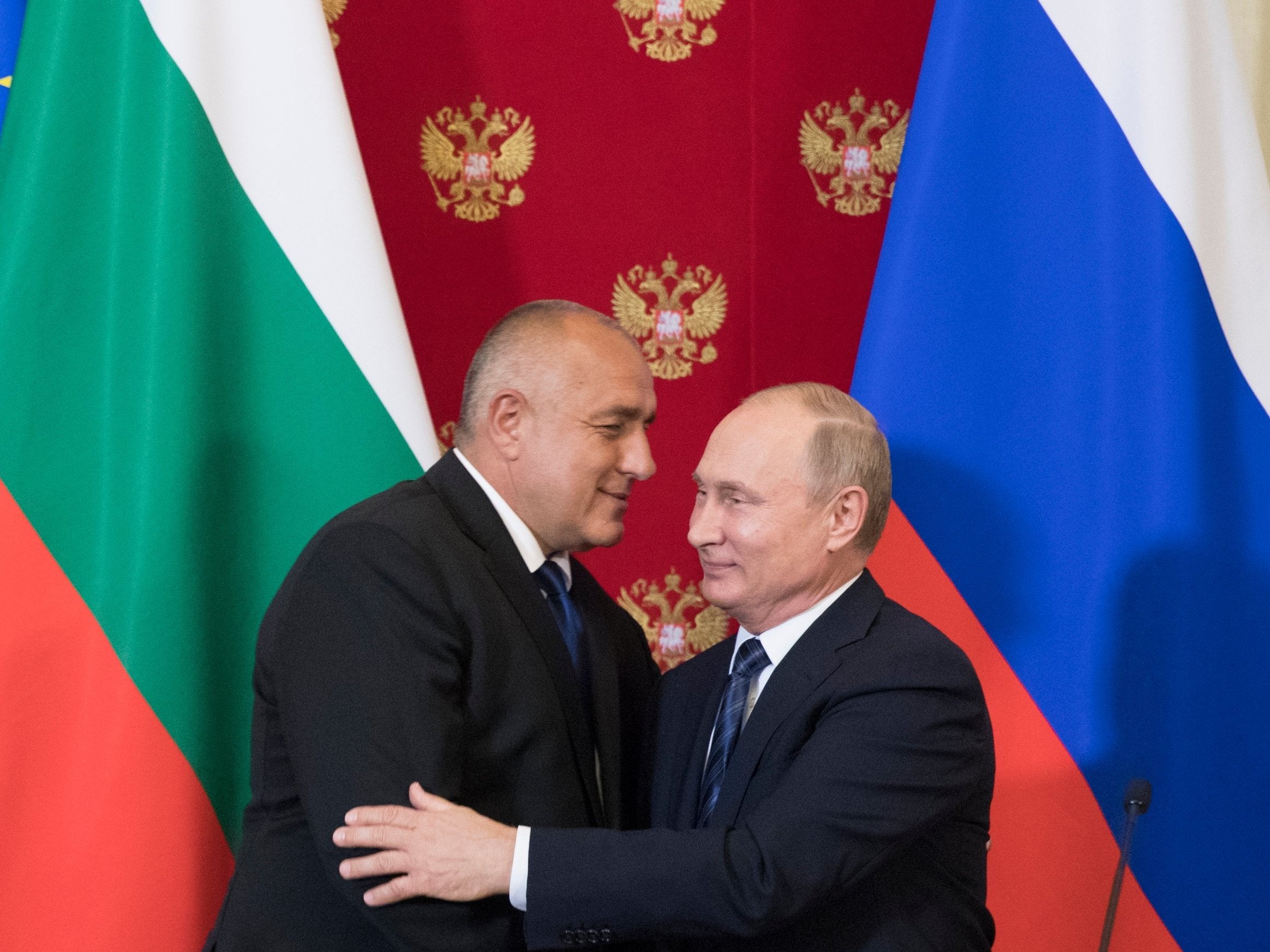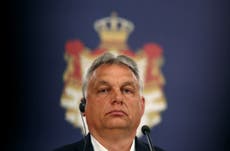While the world is focused on Belarus, the nation of Bulgaria has seen 70 days of volatile anti-government protests
Prime minister Boyko Borisov is a right-wing populist who has been in power for nearly 10 years. But, writes Borzou Daragahi, Bulgarians have now had enough of him


For nearly 70 days, protesters have taken to the streets of Bulgaria to rally against the brutality of the security forces, the corruption of its oligarchs, and anti-democratic moves by the east European country’s leader.
The country has been rocked by sometimes violent anti-government demonstrations that have been given nearly no international media attention, with the world focused on the drama playing out in Alexander Lukashenko’s fiefdom of Belarus to the north.
Bulgaria’s prime minister Boyko Borisov is a right-wing populist in league with the country’s far-right who has been in power for nearly 10 years. Bulgarians have indicated that they have had enough of him and his party, the Citizens for European Development of Bulgaria (GERB), which is part of the mainstream EU centre-right block led by Germany’s Angela Merkel. Rocked by a series of corruption scandals, he has hinted that he’d be willing to resign, but apparently as a strategy to cool the tempers of demonstrators outraged by the abuses of his government.
“I think Borisov would resign with pleasure; he is tired,” a Bulgarian journalist told me. “But he has given promises. It’s about a potential gas pipeline and absorption of EU funds. He can’t move until this money comes and is distributed to the right people.”
On Monday, protesters gathered for the 68th continuous evening at Sofia’s Independence Square, outside the presidency building. “It’s a very diverse group of people,” the journalist said.
Their demands are the resignation of the government and of chief prosecutor Ivan Geshev (a Borisov supplicant who has shown little integrity), the reform of the voting process viewed as rigged, and changes to the constitution. Their anger was fueled by the country’s botched handling of the Covid-19 pandemic, as well as leaked photos that showed Borisov resting on his bed next to stacks of gold, cash and a semi-automatic pistol like some B-movie gangster.
Like in Belarus, women are playing a prominent role in leading and explaining the protests. In a recent essay, the Bulgarian scholar Jana Tsoneva summed up the protesters’ grievances and the machinations within the elite that led to the current uprising. “The Bulgarian elite is deeply divided and warring factions wield their power over the state as a weapon against their competitors,” she wrote.
At a recent protest, journalist Svetla Petrova outlined the costs of corruption. Borisov, “will always remain blind to the huge devastation in which GERB will leave Bulgaria and to the huge moral ruin”, she said at a protest a few days ago, according to the Sofia News Agency. “The real legacy of GERB looks like this: the idea of Bulgaria as a disoriented country; Bulgarians [as] confused people, economic migrants fleeing their country; huge social differences that kill all values and hopes; nature beaten by concrete and rubbish.”
Take a look at the United States and the United Kingdom. Petrova’s poetic description could apply to any of the countries being hollowed out by populist regimes.
Yours,
Borzou Daragahi
International correspondent

Join our commenting forum
Join thought-provoking conversations, follow other Independent readers and see their replies
Comments